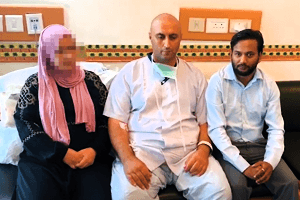Multiple sclerosis is a potentially disabling disease of the brain and spinal cord (central nervous system). In this disease, the immune system attacks the protective sheath that covers nerve fibres and causes communication problems between the brain and the rest of the body. This eventually leads to permanent damage or deterioration of the nerves.
There’s currently no cure for multiple sclerosis (MS), but it’s possible to treat the symptoms with medicines and other treatments. The doctor can start with identifications for Multiple sclerosis depending on the specific symptoms and difficulties the person has. This can include blood tests, Spinal tap (lumbar puncture), or an MRI.
Multiple sclerosis can be treated both orally and surgically. Corticosteroids are provided to the patient orally to reduce nerve inflammation. Surgically, the liquid portion of part of the blood (plasma) is removed and separated from blood cells. The blood cells are then mixed with a protein solution (albumin) and put back into the body. This process is called Plasma exchange.
















